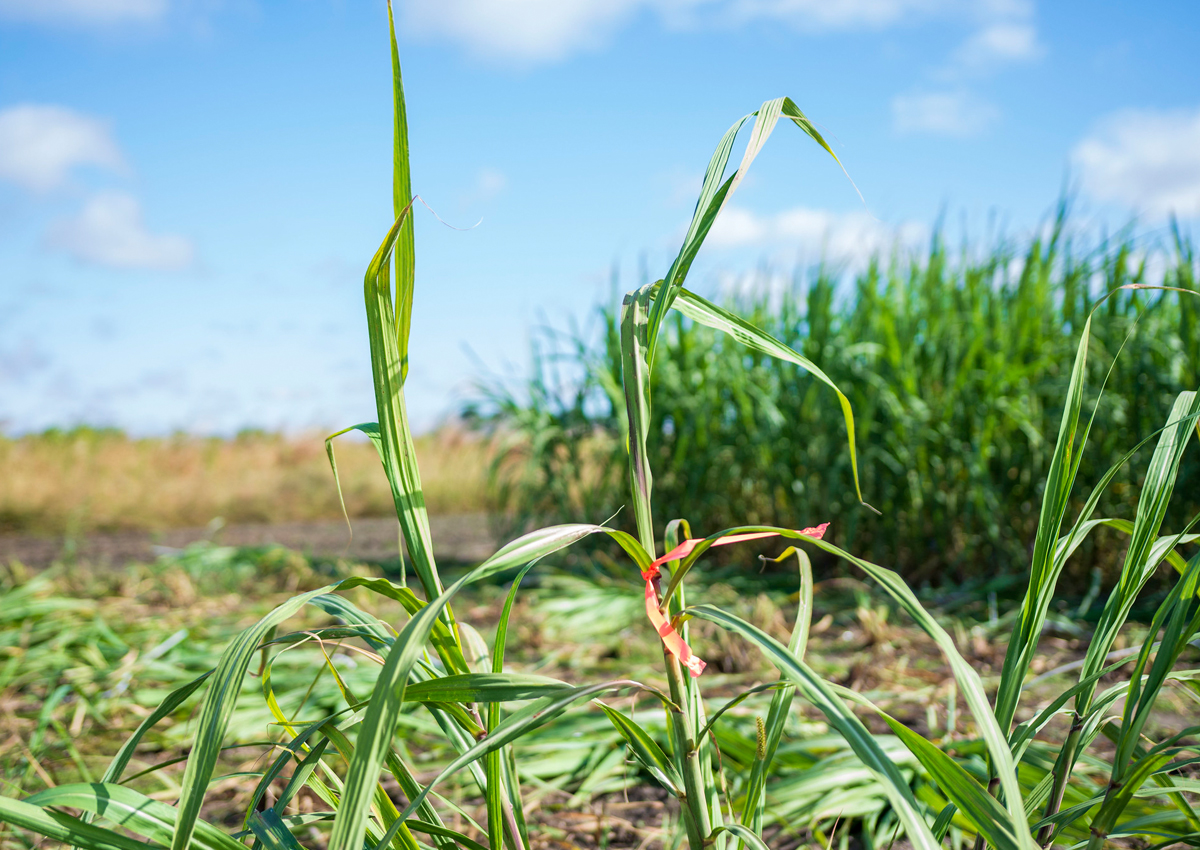
CABBI Researchers Chart Oilcane Microbiome
May 24, 2023| |
In a groundbreaking research collaboration, scientists at the Center for Advanced Bioenergy and Bioproducts Innovation (CABBI) have identified the types of microbes that associate with engineered oilcane. Exploring the oilcane microbiome may reveal opportunities for plant-microbial interactions in these feedstocks and also increase oil yields for sustainable bioenergy production.
Microbiome management allows crop improvement, and understanding the interactions between plants and microorganisms helps scientists develop agricultural management practices that can increase crop productivity and resilience. While the sugarcane microbiome has been studied, the oilcane microbiome has not been explored yet. In a collaboration between CABBI's Sustainability and Feedstock Production themes, researchers explored the differences in microbiome structure between several oilcane accessions and wild-type sugarcane.
The researchers planted each of these engineered oilcanes and sugarcane in the same soil. From the grown plants, they sampled the microbes of the leaves, stems, roots, rhizosphere soils, and bulk soil. Using cutting-edge sequencing and bioinformatics tools, the team found that each accession of oilcane had different microbiomes than the non-modified sugarcane. The research team reports that the greatest differences in microbiome composition were observed in the oilcane accession that most highly expressed the WRI1 transgene, also known as the “master-regulator” of lipid biosynthesis, and contributes significant changes in the gene expression profile.
The researchers also suggest that the oilcane's association with specific soil microbes may benefit the plant in some way, as is often the case in other plants. The team hopes to conduct further research to understand how microbiomes unique to certain oilcane types interact with their host plants.
For more details, read the news article on the CABBI website.
| |
You might also like:
- Pocket K No. 45: Biotechnology for Sugarcane
- Researchers Evaluate Sugars and Lipids from Transgenic Sugarcane
- University of Illinois Researchers Develop Oil-Producing GM Sugarcane
Biotech Updates is a weekly newsletter of ISAAA, a not-for-profit organization. It is distributed for free to over 22,000 subscribers worldwide to inform them about the key developments in biosciences, especially in biotechnology. Your support will help us in our mission to feed the world with knowledge. You can help by donating as little as $10.
-
See more articles:
-
Plant
- CABBI Researchers Chart Oilcane Microbiome
- ISAAA Inc. to Hold ASCA6 on September 11-15 in Indonesia
- Purdue University Innovation Introduces Vital Traits to Plants Without Creating Transgenics
-
Animal
- Single Gene Pathway Alteration Turns Chicken Scales into Feathers
- US FDA, NIST Collaborate To Standardize Genomic Alterations of Gene-Edited Livestock
-
Food
- Scientists Create Gene-edited Allergen-free Chicken Eggs
-
Read the latest: - Biotech Updates (December 17, 2025)
- Gene Editing Supplement (December 17, 2025)
- Gene Drive Supplement (February 22, 2023)
-
Subscribe to BU: - Share
- Tweet

